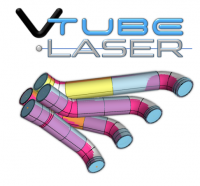Difference between revisions of "How to Diagnose Inaccurate VTube-LASER Measurements"
(→How do you know if the data is not repeating?) |
(→=Bender Data) |
||
| Line 20: | Line 20: | ||
There will always be variances from measure to measure. But there are regular signs that the data is no longer repeating well enough. | There will always be variances from measure to measure. But there are regular signs that the data is no longer repeating well enough. | ||
| − | ===Bender Data== | + | ===Bender Data=== |
| − | For example, if you find that the bender adjustment data is showing values that change significantly during repeated measures of the same tube, then system accuracy needs to be addressed. If you find any ANGLE adjustment swing by 2 degrees, then this is an indicator of a problem. | + | For example, if you find that the bender adjustment data is showing values that change significantly during repeated measures of the same tube, then system accuracy needs to be addressed. If you find any ANGLE adjustment swing by 2 degrees, then this is an indicator of a problem. |
===Linear Deviations=== | ===Linear Deviations=== | ||
If any linear deviations swing by 0.039, then there may be a problem. The only situation where this is not true would be if the material is very deformed. | If any linear deviations swing by 0.039, then there may be a problem. The only situation where this is not true would be if the material is very deformed. | ||
Revision as of 18:00, 7 June 2016
|
When the FARO arm is setup and used properly, the VTube-LASER measurement results should repeat consistently
This is a list of items to check if measurements are not repeating.
How do you know if the data is not repeating?
There will always be variances from measure to measure. But there are regular signs that the data is no longer repeating well enough.
Bender Data
For example, if you find that the bender adjustment data is showing values that change significantly during repeated measures of the same tube, then system accuracy needs to be addressed. If you find any ANGLE adjustment swing by 2 degrees, then this is an indicator of a problem.
Linear Deviations
If any linear deviations swing by 0.039, then there may be a problem. The only situation where this is not true would be if the material is very deformed.
Small Bend Angles
The other exception is in situations with bends with very small bend angles. A bend angle of 5 degrees can cause the intersection point in that bend to swing by up to about a 0.5" in some applications. This is true for all measuring centers - no matter how accurate they are. Intersecting small angled-bends is challenging mathematically for all systems.
Two Kinds of General Issues: Outliers or Inaccuracies
The problem could be either outliers or inaccuracies (or both combined).
Here's an example that shows the difference:
- Measure a straight and carefully watch the points displayed on the screen.
- Repeat the measurement multiple times and watch the wobble deviation in the XY values.
- Does the wobble deviation swing widely?
- Do you see any outliers in the VTube viewport when you let go of the green button after scanning?
Outliers Are Present
If you see outliers, then these outlier points will degrade the accuracy. It is important to setup the system to get rid of outliers (for example with the Cut Plane feature.) For example, extra care has to be taken with Newport tables. The outlier issue is not a point accuracy issue. See Scanning on a NEWPORT type table.
No Outliers Are Present
If you changing wobble deviation WITHOUT outlier points, then you have eliminated the possibility of outliers, and should look into the point accuracy of the system.
Look for anything loose that may cause the arm to shift when it is moved.
- Is there a chance that then arm is not secure at the base?
- Is the probe tightly installed to the arm.
- Does the arm, tube, table move at all (even a little bit) during measurement? If our senses can detect any motion at all during measurement, then this is not the best part holding setup. The entire setup needs to be absolutely still during measurement.
Consider recalibrating the probes.
When is the last time the probes (both the ball and laser) were calibrated? Recalibrate the ball probe then the laser (in that order).
Is the scanner lens clean?
A dirty lens will severely impact accuracy.
What scanner algorithm is being used by VTube?
If this is a highly reflective tube, is VTube-LASER setup for automatic HDR mode in the LLP window?
Has the shop lighting changed?
Is there any new lighting nearby? Is there a bay door open with sunlight flooding in? (This is especially for non-HD scanners.)
Is there a chance that you need the Cut Plane and forgot to measure it?
If you forget to measure a cut plane - but need it, then VTube will be given outlier points.
Can the FARO arm pass the SPAT test?
This is a low level Single Point Accuracy Test. The SPAT test only uses the ball probe - so we know that scanner issues cannot be the cause of this issue.
If the FARO arm cannot pass this test, then something is either wrong with the arm or the arm setup (like how its mounted). Check the setup first. If the setup is not the problem, then contact FARO to check for an internal defect.
Other Pages
- Back to the VTube-STEP page
- Back to the VTube-LASER page

